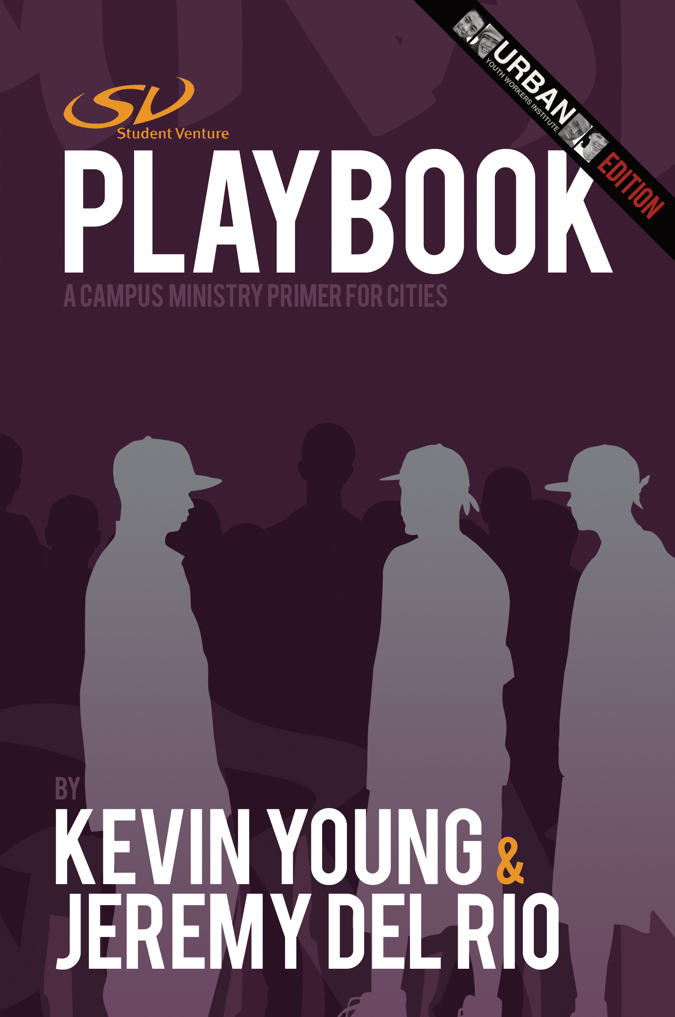
Our church music should do more than simply celebrate God's goodness to us personally; it should express His concern for righteousness in all areas of life. (Photos © 2009 by Paul Whitlock. Connect with him via Twitter.)
"He who sings prays twice." -- Saint Augustine
"What's going on?" -- Marvin Gaye
The soundtrack of the 1970s still speaks to us. Life, as many had known it, was rapidly changing back then. A generation had found its revolutionary voice and was confronting oppression domestically and abroad. Disenchantment with status quo Americanism had sparked the nation's social consciousness. And from the center of this whirlwind emerged a cry for deep justice.
A singer captured the ethos of the age: "What's going on?" he asked.
War, social decay, and racial unrest conspired against a generation. Too many mothers were crying, too many brothers dying. "We don't need to escalate," he urged. Please stop judging and punishing picket signs with brutality. "We've got to find a way to bring some lovin' here today."
Fast-forward almost 40 years and Marvin Gaye's music feels as timely as ever.
Where's the "Lovin' Here Today"?
At its core, the Gospel is a story about a loving God who reconciles humanity into loving relationships with Himself, themselves, and each other. Justice fits into the story as Christ rights the wrongs that prevent those relationships. Worship as both music and lifestyle should reflect this. But does it?
In a world marked by wars, genocide, street gangs and terror thugs, ethnocentrism, generational poverty, famine, AIDS, substandard housing and education, rampant materialism, religious hatred, and environmental degradation, where's the lovin' in our church music? The kind of lovin' that rights wrongs and reconciles relationships?
The songs that typically rank as the "most popular" in mainstream evangelical churches today are filled with beautiful expressions of God's holiness and love. But they seem to lack a consistent emphasis on worship that moves beyond a personal experience to include a clear declaration of the social-justice dimension of God's activity in the world.
Sadly, too often our church music is directed inward as a distorted, selfish facsimile of worship. We long for God to meet personal needs and mediate justice on our own behalf, radically reducing our songs to individualized laundry lists of wants. Consider these popular contemporary worship song lyrics:
 Jeremy Del Rio, Esq. consults churches and community groups on youth development, social justice, and cultural engagement. He is a co-founder and lead strategist for 20/20 Vision for Schools, a campaign to transform public education within a single generation of students. Previously, he co-founded and directed Community Solutions, Inc., which provides after-school programs and summer camps through Generation Xcel and hosts service learning trips nationally through Chain Reaction; and was the founding bi-vocational youth pastor at Abounding Grace Ministries. He also worked as a corporate attorney in New York. He blogs at Away with Words.
Jeremy Del Rio, Esq. consults churches and community groups on youth development, social justice, and cultural engagement. He is a co-founder and lead strategist for 20/20 Vision for Schools, a campaign to transform public education within a single generation of students. Previously, he co-founded and directed Community Solutions, Inc., which provides after-school programs and summer camps through Generation Xcel and hosts service learning trips nationally through Chain Reaction; and was the founding bi-vocational youth pastor at Abounding Grace Ministries. He also worked as a corporate attorney in New York. He blogs at Away with Words.
 Pastor Louis A. Carlo is the worship minister at Abounding Grace and a former a site director at Generation Xcel and the worship leader at YW8 (Why Wait?) Youth Ministries. He's also an accomplished photographer and occasional filmmaker.
- Originally published at UrbanFaith.com (August 2009)
Pastor Louis A. Carlo is the worship minister at Abounding Grace and a former a site director at Generation Xcel and the worship leader at YW8 (Why Wait?) Youth Ministries. He's also an accomplished photographer and occasional filmmaker.
- Originally published at UrbanFaith.com (August 2009)
• "I can feel [the 'presence,' 'spirit,' and 'power' of the Lord] / And I'm gonna get my blessing right now" (from "The Presence of the Lord is Here," by Byron Cage).
• "In my life I'm soaked in blessing / And in heaven there's a great reward / ... I've got Jesus, Jesus / He calls me for His own / And He lifts me, lifts me / Above the world I know" (from "God Is in the House," by Hillsong United).
• "(I got the) anointing / (Got God's) favor / (And we're still) standing / I want it all back / Man give me my stuff back / Give me my stuff back / ... I want it all / ... I want that" (from "I Want it All Back," by Tye Tribbett).Contrast those with the three recorded songs that accompanied Jesus' birth. While the melodies have been lost to time, the lyrics reverberate through history. The first, a spontaneous soulful utterance by a pregnant virgin, marveled about the Mighty One who miraculously conceived His child within her. "He has brought down rulers from their thrones but has lifted up the humble. He has filled the hungry with good things but has sent the rich away empty" (Luke 1:52-53). What of the Rolls Royce-driving, private jet-flying, multiple mansion-dwelling, high fashion-wearing preachers and modern Christian subculture profiteers? What about the good life to which their songs and sermons aspire? What fills them? The second, a choir song performed by heaven's finest angels for an audience of outcast shepherds, proclaimed: "Glory to God in the highest, and on earth peace to men on whom his favor rests" (Luke 2:14). The peace of which they sang is shalom, and favor refers to "the year of the Lord's favor" embraced within Christ's mission (Luke 4:18-19, quoting Isaiah 61). More than the absence of strife, shalom is what the Prince of Peace came to reestablish: The interdependency of vibrant communities; the vitality of healthy bodies; the manifold mysteries of parental love; and the majesty of the cosmos. The condition of sin robs shalom, but Jesus' justice restores it. When the most affluent people in recorded history attempt to co-opt Jesus' favor as a rationale to get more stuff, we cheapen everything the gospel represents. The third song, by an old man long past his prime, declared Jesus, "a light for revelation to the Gentiles and for glory to your people Israel." He then explained the lyrics to Jesus' parents: "This child is destined to cause the falling and rising of many in Israel, and to be a sign that will be spoken against, so that the thoughts of many hearts will be revealed. And a sword will pierce your own soul too" (Luke 2:32, 34-35). Not much touchy feely hoopla here either. Not one of these songs celebrates the themes that predominate our weekly worship services. No mention of "me," except in the context of calling and responsibility beyond oneself. No focus on "blessing," except as it relates to our ability, empowered by God, to bless others. No pursuit of personal comfort; rather, the promise of a sword to pierce one's soul. Indeed, the soundtrack that accompanied heaven's lyric -- the Word made flesh and dwelling among us -- bears little resemblance to popular songs we sing in our churches. When that timeless Word "moved into the neighborhood" (John 1:14, The Message) his manner of doing so invited shame and ridicule, not material bounty. He lived among us as a child of poverty (born in a barn); political refugee (in Egypt); social pariah (survivor of unmarried pregnancy, a capital crime); ghetto immigrant ("What good comes from Nazareth?"); and blue-collar subject (carpenter) of an imperialistic colonizer (Rome). He was a friend of prostitutes (such as Mary Magdelene), crooked bureaucrats (tax collectors like Matthew and Zacchaeus), and terrorists (including his disciple Simon, the Zealot, a card-carrying member of a first-century Palestinian terror organization). If He actually showed up to one of our stylized worship experiences, He may well sing a different tune, one that sounds more like the warning He gave through the Old Testament prophet Amos:
"I can't stand your religious meetings. I'm fed up with your conferences and conventions. I want nothing to do with your religion projects, your pretentious slogans and goals. I'm sick of your fund-raising schemes, your public relations and image making. I've had all I can take of your noisy ego-music. When was the last time you sang to me? Do you know what I want? I want justice -- oceans of it. I want fairness -- rivers of it. That's what I want. That's all I want" (Amos 5:21-24, The Message).Taking Amos at his word, if all God wants is oceans of justice rather than egocentric noise, then the needs of a broken world must reclaim center stage from personal blessings during corporate worship experiences. Notwithstanding the public repentance for neglecting the poor by high-profile leaders like Bill Hybels and Rick Warren, many churches remain mute on such issues and have abandoned prophetic moments in lieu of religious protocol. What to Do? How can worship leaders help navigate oceans of justice within congregational gatherings? First, in the music and expressions of worship we embrace; and second, by facilitating worship as lifestyle, not just musical ritual. Marvin Gaye's opus reminds us that music ennobles ideas, emotes passion, and defines eras. Because we feel it, music penetrates hearts and stimulates a response. Combine inspired notes with well-crafted lyrics and the results can be liberating. Or lethal. In Call and Response, a 2008 documentary about sex trafficking, Dr. Cornel West describes music's power to accentuate and ultimately eradicate injustice:
"Music is about helping folk ... by getting them to dance. Getting them to move. Getting them to think. Getting them to reflect. Getting them to be themselves, to somehow break out of the conventional self that they are."As musicians use that power to draw attention to injustices, people cannot help but get involved, West contends, because "justice is what love looks like in public." Historically, some denominational traditions have embraced justice-oriented hymns and music (e.g., Ecumenical Advocacy Alliance and "O Healing River"), and Native Peoples have more than most (e.g., "Every Part of this Earth," words by Chief Seattle). CCM pioneer Keith Green was an anomaly among evangelicals through the '70s and early '80s with songs like "Asleep in the Light," which challenged: "Open up, and give yourself away / You've seen the need, you hear the cry, so how can you delay." But increasingly music ministers across traditions are giving voice to justice within worship services (e.g., Jason Upton's "Poverty," Brian McLaren's "A Revolution of Hope," and Aaron Niequist's "Love Can Change the World"). Jesus' mission -- Good News for the poor, sight for the blind, and liberty for the oppressed -- requires the courage to break free from convention, perceive the new things God is doing in our midst, and zealously pursue them. How We Get There 1. Refocus. Reductionist Western worship is possible because we have lost a sense of awe and reverence for Who God is, fashioning instead a God in our own image. Mark Labberton in his book, The Dangerous Act of Worship, writes:
The God we seek is the God we want, not the God who is. We fashion a god who blesses without obligation, who lets us feel his presence without living his life, who stands with us and never against us, who gives us what we want, when we want it.Rather than appealing to God on account of his character -- a holy, righteous, just, and mighty God -- we have become gods unto ourselves, presupposing long before we encounter His presence what He needs to do on our behalf and prejudging what matters most. Let's refocus on Who really matters. 2. Repent. The failure to incorporate laments for justice into corporate worship underscores a much deeper problem. Fundamentally we misunderstand what worship really is. Worship is neither the rhythmic pursuit of a euphoric high nor the somber embrace of silent reflection. Such either/or myopia forgets that Jesus describes true worshipers as those who worship "in spirit and truth" (John 4:23). Paul elaborates that "our spiritual act of worship" requires offering our very selves as "living sacrifices" (Romans 12:1-2). First century Romans familiar with ritual sacrifices understood that phrase to be a contradiction. One did not sacrifice living bulls, for example. The peril of potential impaling demanded that sacrifices be dead first. Yet God invites worshipers to voluntarily self-sacrifice. Paul continues: "Do not conform any longer to the patterns of this world" -- white picket fences, trendy fashions, and such -- "but be transformed by the renewing of your mind. Then you will be able to test and approve what God's will is -- his good, pleasing and perfect will." Where our will conforms to the world's patterns and trumps God's will, let's repent for rejecting true worship. 3. Remember. The holy God we revere is also our righteous king who exacts justice on behalf of his people. Moses and Miriam remembered in Exodus 15 when they praised Yahweh for demonstrating justice in his dealings with Pharaoh and liberating his people. Hannah remembered when she thanked God for his justice on her behalf (1 Samuel 2). King David remembered when he declared, "The Lord reigns!" and embraced a heavenly King who ruled above him and all other powers, whose eternal justice and righteousness are irrevocable. Let's also remember that our "Lord loves justice" (Isaiah 61:8). 4. Reconnect. No longer should worship gatherings embrace the first part of the Great Commandment, "Love the Lord your God with all your heart, mind, soul and strength," at the expense of the second part, "Love your neighbor as yourself." Let's reconnect His love in a coherent whole. 5. Realign. Justice and worship at their core both deal with power and the abuses of power. By emphasizing God's kingship, his rule over all creation, and his impeccable character, we intentionally create space for the Most High to address the fallen powers in our churches, states, nation, and world. Let's realign our congregations under God's power as work within us rather than the abusive power structures dominating the world. 6. Rediscover. As we identify and proclaim the laments of the marginalized with a deep understanding that their cries are our cries, we will begin to see our perspectives shift and the power of God move in ways that we never would have imagined. Let's rediscover the unleashed, all-powerful God, not our tempered and tame God in a box. Like Aslan of Narnia, He may not be safe, but "He is good." _____________________________________________________________________
 Jeremy Del Rio, Esq. consults churches and community groups on youth development, social justice, and cultural engagement. He is a co-founder and lead strategist for 20/20 Vision for Schools, a campaign to transform public education within a single generation of students. Previously, he co-founded and directed Community Solutions, Inc., which provides after-school programs and summer camps through Generation Xcel and hosts service learning trips nationally through Chain Reaction; and was the founding bi-vocational youth pastor at Abounding Grace Ministries. He also worked as a corporate attorney in New York. He blogs at Away with Words.
Jeremy Del Rio, Esq. consults churches and community groups on youth development, social justice, and cultural engagement. He is a co-founder and lead strategist for 20/20 Vision for Schools, a campaign to transform public education within a single generation of students. Previously, he co-founded and directed Community Solutions, Inc., which provides after-school programs and summer camps through Generation Xcel and hosts service learning trips nationally through Chain Reaction; and was the founding bi-vocational youth pastor at Abounding Grace Ministries. He also worked as a corporate attorney in New York. He blogs at Away with Words.
 Pastor Louis A. Carlo is the worship minister at Abounding Grace and a former a site director at Generation Xcel and the worship leader at YW8 (Why Wait?) Youth Ministries. He's also an accomplished photographer and occasional filmmaker.
- Originally published at UrbanFaith.com (August 2009)
Pastor Louis A. Carlo is the worship minister at Abounding Grace and a former a site director at Generation Xcel and the worship leader at YW8 (Why Wait?) Youth Ministries. He's also an accomplished photographer and occasional filmmaker.
- Originally published at UrbanFaith.com (August 2009)
 Welcome to the professional website and personal weblog of Jeremy Del Rio. Whether you're a client, friend, or curious onlooker, please don't stay a spectator. Engage the conversation. Your contributions matter here.
Welcome to the professional website and personal weblog of Jeremy Del Rio. Whether you're a client, friend, or curious onlooker, please don't stay a spectator. Engage the conversation. Your contributions matter here.

















